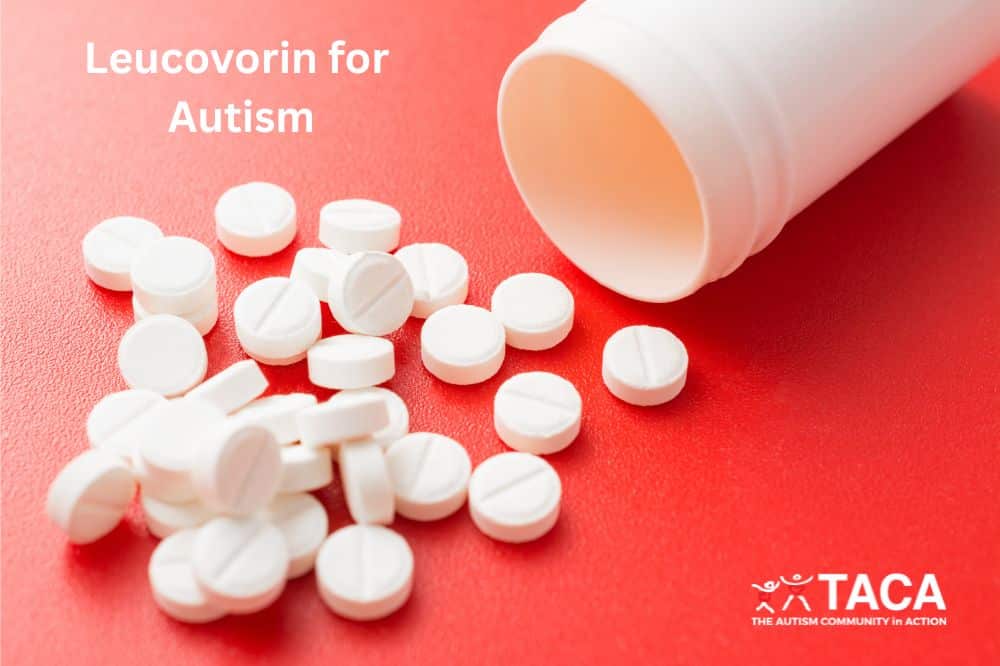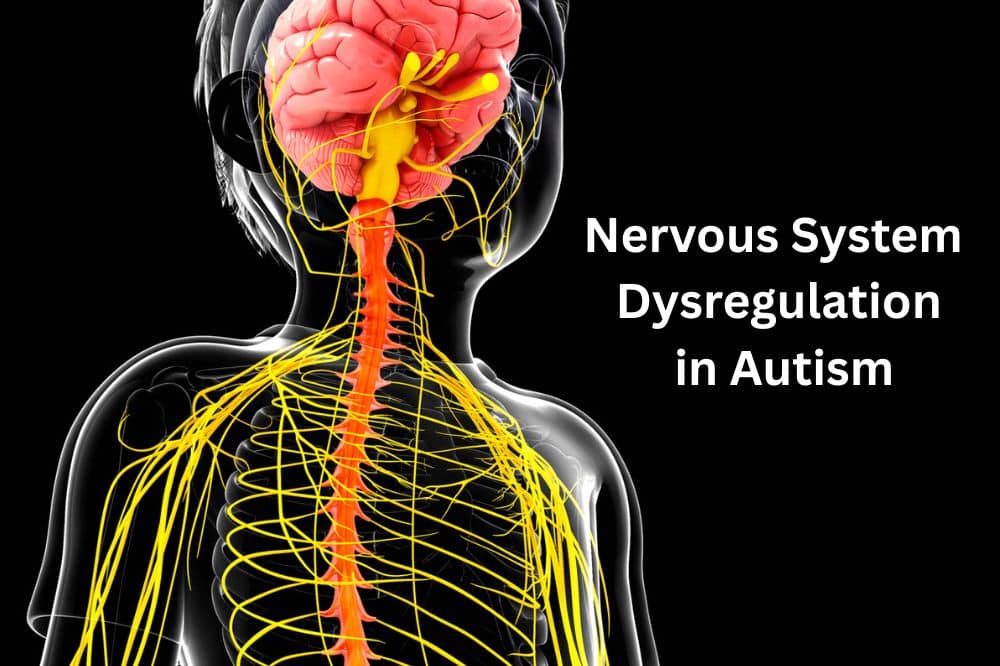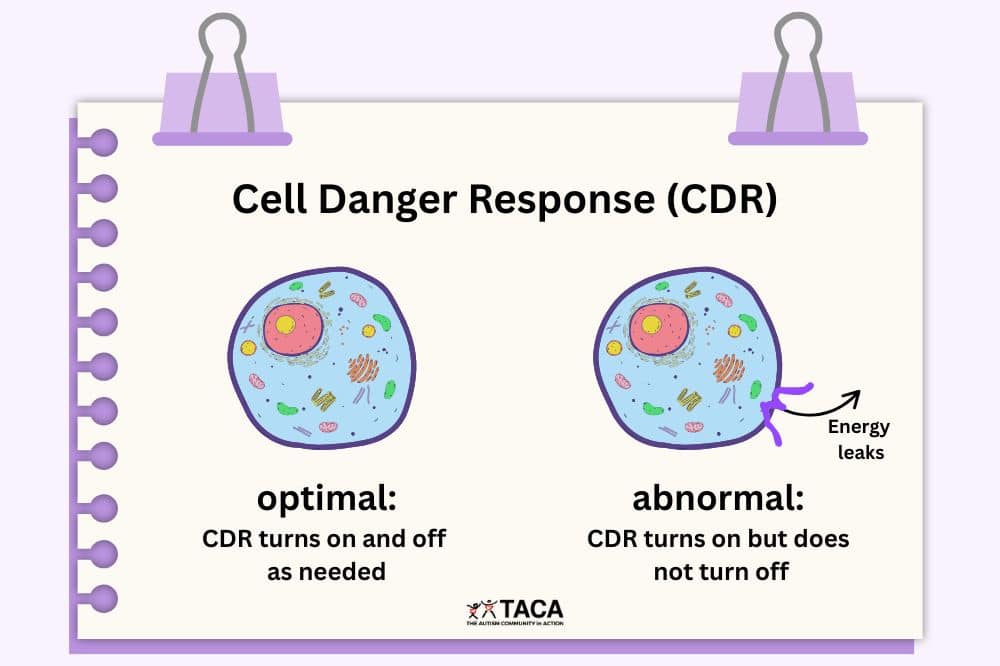High-Impact Medical Interventions for Autism
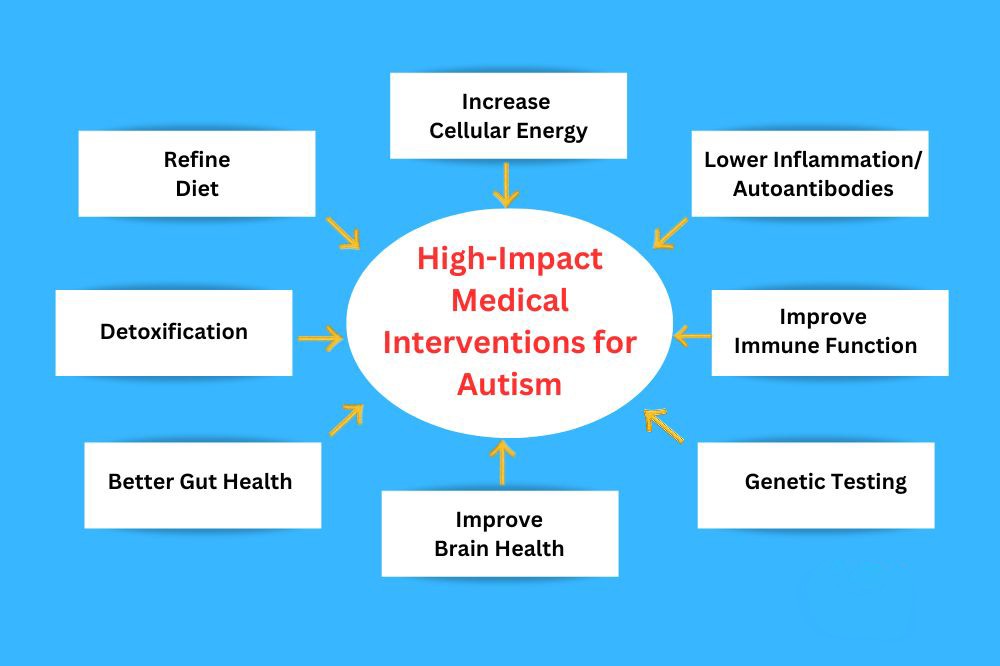
All contents of this resource were created for informational purposes only and are not intended to be a substitute for professional advice, diagnosis, or treatment. Always seek the advice of your physician, therapist, or other qualified health providers with any questions or concerns you may have.
There are medical treatments that are specifically impactful when treating autism symptoms, thus improving your child’s quality of life. Using these interventions can help improve behaviors associated with autism. The graphic below lists them in no particular order. See the rest of the article for quick definitions of these items and where to find additional information.
These are short summaries of medical interventions that can have a big impact on helping a person diagnosed with autism. Please click on “Learn More” to read detailed information on these topics.
You can learn more about finding a functional medicine doctor in the TACA article titled “Finding a Doctor“.

Refine Diet
Find and Eliminate Food Sensitivities
Food Sensitivities (unlike food allergies) produce a delayed behavioral response up to 72 hours after the person has eaten the food. Eliminating common food sensitivities can help improve everything from behavior to rashes, to constipation, and more.
Learn more:
- Introduction to the Gluten-Free, Casein-Free, Soy-Free Diet
- Top Reasons to Implement a GFCF Diet
- Going GFCF in 10 Weeks
- Phenols, Salicylates, and Additives
- Dietary Infractions: How to prevent them and what to do when they occur
- GFCFSF Diet on a Budget
Address Nutritional Deficiencies
Nutritional Deficiencies can happen as a result of restricted eating habits, malabsorption in a compromised gastrointestinal tract, autoimmunity, or even genetic abnormalities.
Learn more:
- Nutritional Deficiencies in Autism
- Picky Eating in Autism
- Healthy Eating Tips for Teens and Adults with Autism
- Pica in Autism
Reduce Glutamate in the Diet
Glutamate is an excitatory neurotransmitter in the brain. It needs to balance with GABA, which is calming. Too much glutamate and not enough GABA can cause issues with sleep, anxiety, OCD, focus, and more.
Learn more:
Remove Ultra-Processed Foods
Ultra-processed foods are ready-to-eat, industrially formulated products made mostly from substances derived from foods and additives. Examples include products such as Doritos, Goldfish crackers, soda, packaged cookies, flavored yogurt, and fast food. These types of food can directly affect behavior in our kids diagnosed with autism.
Learn More:
- Avoiding Processed Foods
- Picky Eating in Autism

Increase Cellular Energy
Treat Mitochondrial Dysfunction with a Full Mitochondrial Cocktail
Mitochondrial Dysfunction happens when the powerhouses of cells are not working efficiently, thus affecting numerous bodily systems. Up to approximately 80% of children with autism spectrum disorder (ASD) have metabolic evidence of mitochondrial dysfunction. It is treated with a “mito cocktail”, which is a combination of vitamins, dosed per the research, to support the mitochondria.
Learn more:
Remove Environmental Triggers that May Harm the Body
Environmental triggers are toxins or anything one is sensitive to, affecting the cells’ ability to function properly. Therefore, it is important to remove toxic triggers.
Learn more:
Methyl B12 supplementation
Methyl B12 is the bioavailable form of vitamin B12 which helps methylation directly impacting cognition, energy production, detoxification pathways, and more.
Learn more:
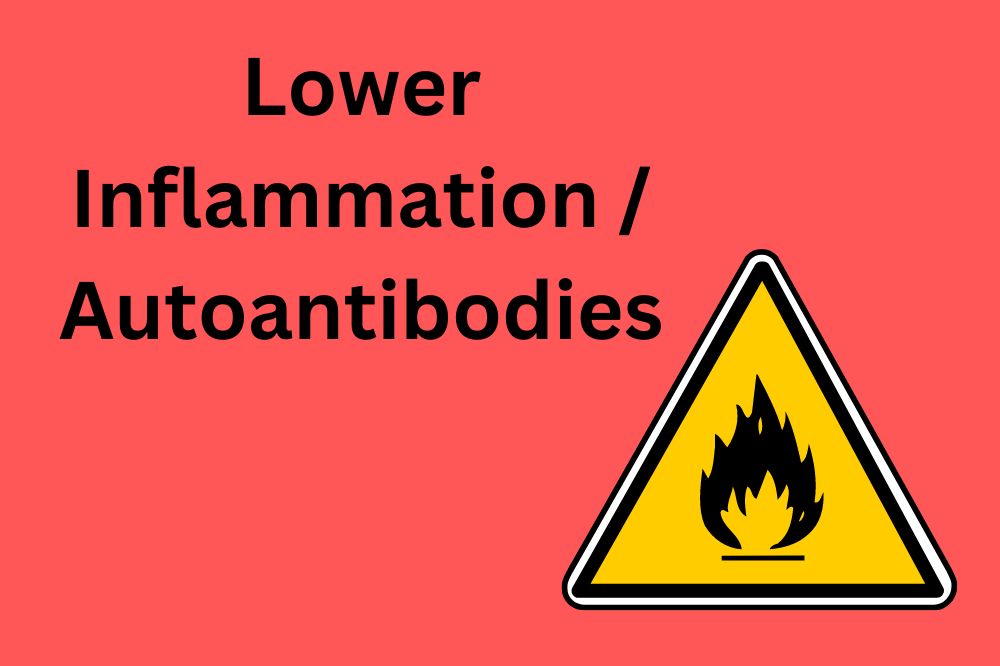
Lower Inflammation / Autoantibodies
Test for and Treat Folate-Blocking Antibodies
The presence of Folate Receptor Autoantibodies (FRAAs) is an autoimmune condition that blocks folate from entering the cell, thus limiting the amount of folate that gets to the brain. If found, this is treated with prescription Leucovorin (high dose folinic acid).
Learn more:
Test Thyroid Levels and Antibodies
Understanding thyroid levels and autoantibodies is critical. Hypothyroidism, hyperthyroidism, or Hashimoto’s Disease can all cause symptoms that result in developmental delay.
Learn more:
Manage Mast Cell Activation
Mast cell activation happens when mast cells in the body are triggered and release histamine and inflammatory molecules. This causes allergic-type responses but can also increase brain inflammation, thus influencing behavior.
Learn more:

Detoxification Strategies
Support Healthy Liver Function
Healthy liver function is critical to moving toxins out of the body. Supporting phase 1 and phase 2 detoxification in the liver can ease aggression and autism behaviors.
Learn more:
Open Detoxification Pathways
Impaired Detoxification Pathways such as methylation and sulfation may inhibit the body from properly excreting toxins, thus causing symptoms of autism.
Learn more:
Reduce Oxidative Stress
Oxidative Stress happens when there are too many free radicals in the body and not enough antioxidants to get rid of them causing anxiety, depression, emotional stress, and excessive aggression.
Learn more:

Better Gut Health
Address Chronic Constipation
Chronic Constipation happens when slow gut motility, lack of adequate fiber, pathogenic bacteria, and other factors contribute to an inability to expel all stool. This is extremely painful and causes poor sleep, aggression, and more.
Learn more:
Treat Complex GI Issues
There are numerous Complex GI Issues such as Eosinophilic Esophagitis, Reflux, Clostridia, SIBO, Leaky Gut, poor bacterial diversity in the gut, and poor vagal nerve tone, that are more common in autism than in neurotypical peers. Healing these issues will likely lead to better focus, better behavior, and less aggression.
Learn more:
Treat Yeast Overgrowth
When your child is hyper, craving carbs and sugar, and has brain fog, they are likely struggling with Yeast Overgrowth in their gut. This happens when there is too much fungus in the gut.
Learn more:
Reduce Pathogenic Bacterial Overgrowth in the Gut
Pathogenic Bacterial Overgrowth can happen when there is not enough beneficial bacteria to properly balance the gut. Examples of pathogenic bacteria include Clostridia overgrowth, Klebsiella Pneumoniae overgrowth, and Clostridium Difficile.
Learn more:

Improve Brain Health
Treat Cerebral Folate Deficiency with Leucovorin
Cerebral Folate Deficiency (CFD) is a disorder in which there is low 5-MTHF (bioavailable folate) in the brain. Folate levels in the blood, whether they are low, normal, or high do not reflect the amount of folate in the brain. This condition happens as a result of autoantibodies, poor mitochondrial function, and/or genetics.
Learn more:
Identify and Treat Low Cholesterol
Low Cholesterol, which is a total cholesterol level of 145 or lower is problematic and can result in depression, moodiness, confusion, anxiety, poor sleep, aggression, and more. Learning about your child’s lipid profile can guide treatment.
Learn more:
Test for Seizure Activity or Abnormal Brain Discharges
Seizures are uncontrolled electrical activity in the brain. This includes subclinical activity that people do not notice, which shows up on the EEG as abnormal readings. Seizures can cause a variety of symptoms from aggression to lack of focus, to hyperactivity. Additionally, there is some seizure activity only found during sleep – therefore only found with overnight EEG.
Learn more:
Integrate Primitive Reflexes
Primitive Reflexes are movements that an infant is born with. After about 18 months, these primitive reflexes go away and turn into more functional body movements. Some of our kids do not lose their primitive reflexes and need to do daily exercises to integrate them. Retained primitive reflexes cause numerous symptoms such as anxiety, poor motor skills, lack of focus, and poor executive functioning.
Learn more:
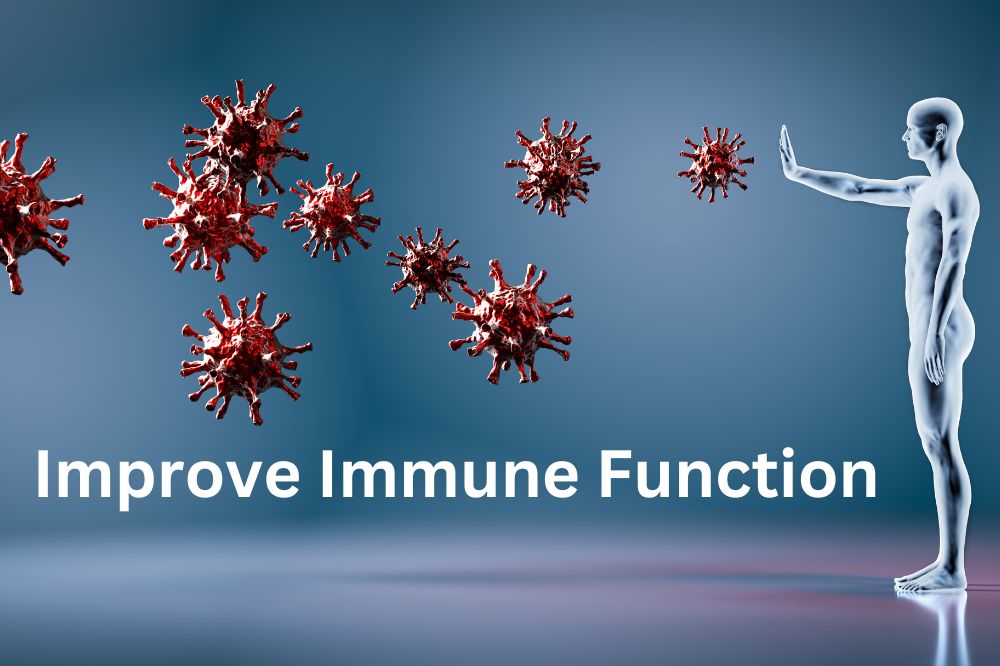
Improve Immune Function
Test Vitamin D levels and Treat if below 50
Vitamin D is a fat-soluble vitamin needed to help the body absorb calcium and for proper immune function. Therefore, blood levels should be between 50 and 80.
Learn more:
Test for Chronic Infections such as Lyme and Strep
Chronic Infections such as Lyme or Strep sometimes go undetected and simmer below the surface causing both physical and behavioral symptoms.
Learn more:
Test Home for Mold and Treat for Mycotoxins
Mold produces mycotoxins which can be immunosuppressive and cause symptoms of autism.
Learn more:
Treat Autoimmune Encephalitis and PANS / PANDAS
Autoimmune Encephalitis and PANS / PANDAS are brain inflammation, typically as a result of viral or bacterial triggers. These cause abrupt and severe changes in behavior including restricted eating, OCD, and severe anxiety.
Learn more:
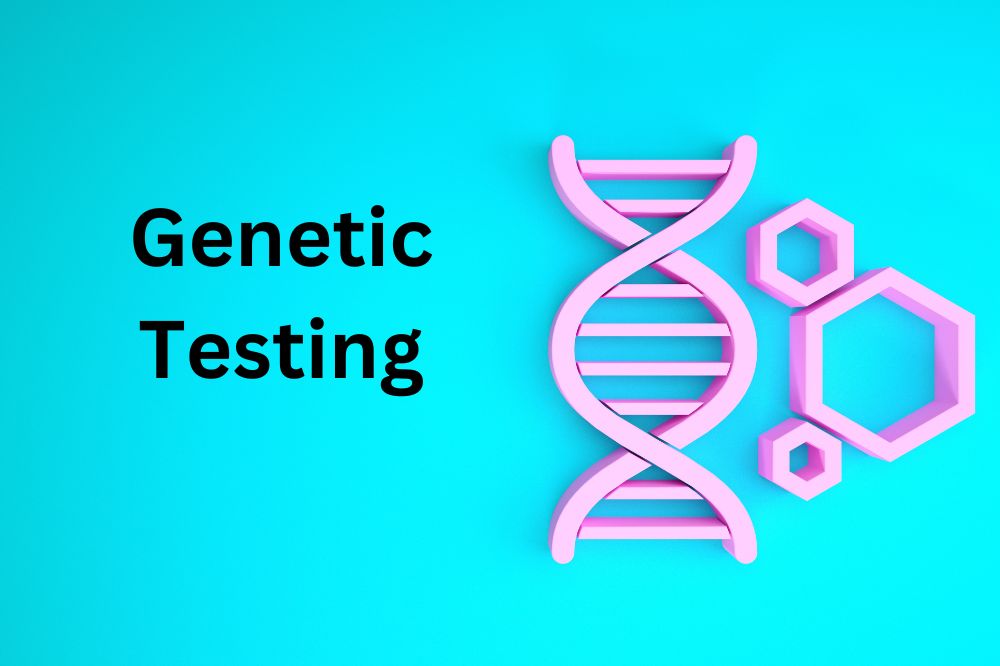
Genetic Testing
Test for Treatable Genetic Conditions
Testing for genetic conditions with a karyotype and microarray is the first step in genetic testing to help understand if there are underlying treatable conditions.
Learn more:
WES or WGS for More Advanced Testing
Advanced Genetic Testing, such as WES or WGS, is more comprehensive and can help parents understand what metabolic systems need to be supported.
Learn more:
Conclusion
Addressing the listed medical issues above tends to have a big impact on healing for our kids diagnosed with autism. Please take the time to do a deep dive into the things that you believe may be impacting your child. You can do this by clicking on the links that will take you to the TACA website articles on those related topics.

